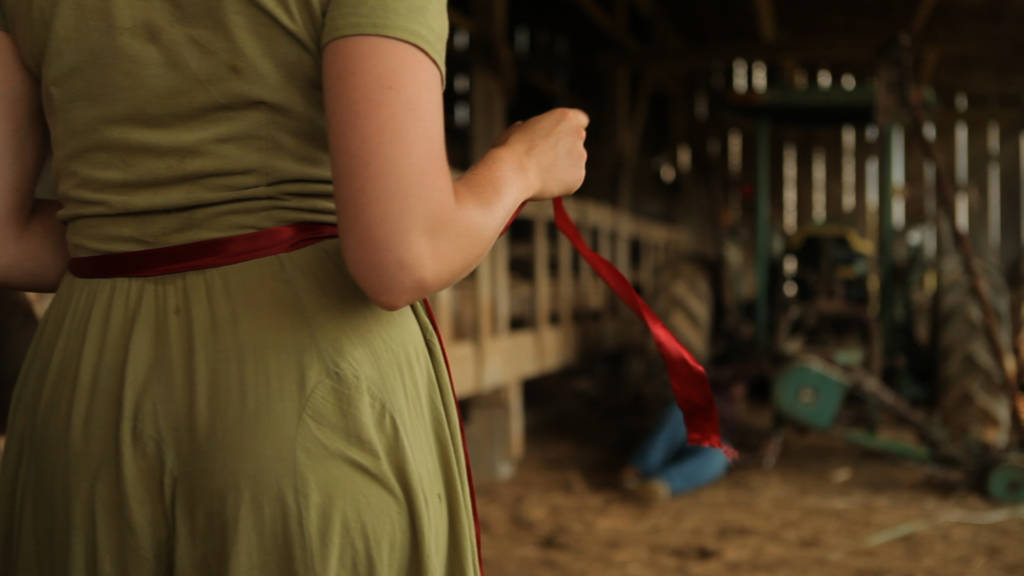In Thou Wast Mild and Lovely, mumblecore gains a female voice, and comes to run wild in the country. Josephine Decker's handsome second feature - her first, Butter on the Latch, is also screening in this year's LFF - shows just how widely the Terrence Malick approach to nature has permeated American thinking: it may be the first film in cinema history to privilege, at one crucial juncture, a cow's point of view. An even greater narrative influence for this quietly simmering erotic thriller may be The Postman Always Rings Twice: we're watching a love triangle playing out around an isolated location - here, a remote Kentucky farm - between a possessive alpha male, the pent-up nature girl he's keeping under lock and key, and the outsider brought in as a temporary hired hand.
Over a slowburn 78 minutes, Decker delights in the kind of site-specific textures that have become beloved of the post-Malick indie: the unfolding of crisp lettuce leaves, unshoed feet pushing through the grass, a brush being passed through a horse's mane. It's always atmospherically foggy at milking time, and reliably roseate at sundown. Yet she gives this set-up her own distinctive wrinkles. The girl (the lithe, dancer-like Sophie Traub) is the alpha's daughter, not his wife. The outsider (Joe Swanberg) is already married with a young child, failing to disclose to his hosts the wedding ring he's secured in his glove compartment or the worried phone messages his other half has left for him; he could, we sense, be just as repressive as any other guy, an intuition only strengthened when we see him larkingly attaching a horse's reins to his hostess.
Such jolting eccentricity keeps Decker's film alive and unpredictable: we're never quite sure which direction it's heading in, nor which of the points in this triangle most merits our sympathies. In an early conversation, the farmer (Robert Longstreet) mentions he keeps his last hired hand locked up in a barn, and though it's meant as a joke and possibly a warning, it nevertheless sounds eerily plausible. The cowcam (as it were) is deployed in the immediate aftermath of an illicit coupling, and suggests watching these two getting it on was the highlight of a day otherwise spent nosing out cud to chew.
Mumblecore has traditionally kept its protagonists in close-up, the better to record their aimless conversation, and to forge ties between these young, white, comfortably appointed Americans, the young, white, comfortably appointed Americans filming them, and the young, white, comfortably appointed Americans watching them. Decker, by contrast, keeps finding intriguing layers of distance: she makes good use of Swanberg's innate sketchiness, the sensation he could equally be the all-American boy next door or the quiet young man who spends his nights cutting up women in his basement, and makes the character's fantasy of the lusty, pliable farmgirl as weird and dangerous as it might well be in real life. When our so-called hero's other half shows up in person to press home this lesson, the film suddenly gets very mumbly - more generic and proscriptive, less floridly expressive - but it's true to Decker's methods of seeking out new perspectives on the world: down on this farm, we catch not a whiff of manure, but a breath of fresh air.
Thou Wast Mild and Lovely screens on Thu 9 in NFT3 at 4pm, and then on Fri 10 at 8.45pm at the ICA.

No comments:
Post a Comment